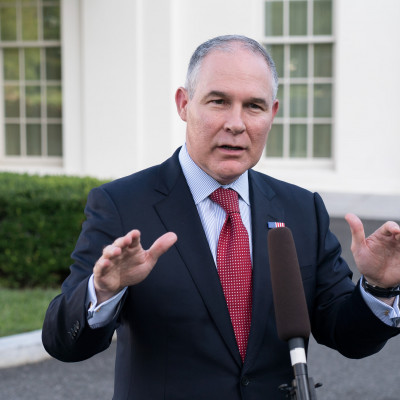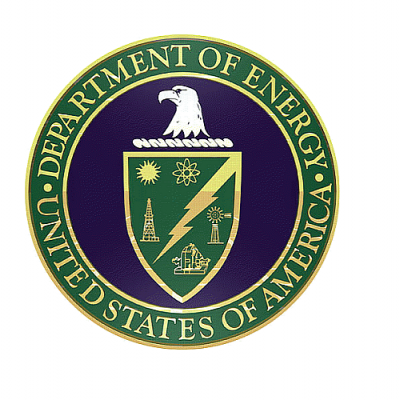July 31, 2017
July 2017 at Policy Integrity:
- National Monuments Under Threat
- Pruitt’s Lawless Actions
- Science Article on Toxic Contaminants
- Defending the Social Cost of Greenhouse Gases
- Regulatory Review at Federal Agencies
- Staff Spotlight: Jeffrey Shrader
-

National Monuments Under Threat
The Trump administration is undertaking a review of lands designated as national monuments with an eye toward revoking or revising the monument status in some areas, and opening some of these lands to energy and mineral extraction. Our recent comments to the Department of the Interior argue that the executive branch lacks the authority to revoke, reduce the size of, or otherwise diminish the protections for existing national monuments. And while the administration has cited potential job growth from increased domestic energy development on these public lands, our comments show that national monuments deliver significant, sustained economic benefits to nearby communities, in contrast to the “boom-and-bust” cycles historically associated with fossil fuel development.
-

In the News: Pruitt’s Lawless Actions
Six months into the job, EPA administrator Scott Pruitt has suspended, delayed, or otherwise blocked numerous environmental regulations, often through legally questionable means. In a new piece in Slate, Richard Revesz and Bethany Davis Noll claim that courts will likely halt many of these efforts since “[Pruitt] has pursued them in a lawless fashion, cutting corners and ignoring fundamental legal requirements.” Pruitt recently lost his first court challenge when the U.S. Court of Appeals for the D.C. Circuit struck down an attempt to delay a Clean Air Act regulation that limits methane leaks from oil and gas facilities. The piece cites other deregulatory interventions that are vulnerable, arguing that many of these actions will not survive legal challenges.
-

SCIENCE Article on Regulating Toxic Contaminants
Science recently published an article that Richard Revesz co-authored, among others, with Al McGartland, Director of EPA’s National Center for Environmental Economics, and Tracey Woodruff, Professor of Obstetrics, Gynecology, and Reproductive Sciences at the University of California at San Francisco. It challenges the current approach to the regulation of toxic pollutants other than carcinogens, which are generally treated as if they had a population threshold below which there are no adverse health effects. This assumption is questionable for most contaminants, as recognized by the National Academy of Sciences almost a decade ago, but nonetheless it continues to be widely used by regulatory agencies. In turn, this scientific shortcoming skews the cost-benefit analysis of regulation leading to a systematic underestimate of the benefits of pollution reduction. The article also takes issue with the treatment of contaminants for which the evidence of adverse health effects fall short of near-certainty. Even though individuals have a willingness to pay to reduce the concentrations of such pollutants, the current analytical techniques assign no value to such reductions.
-

Defending the Social Cost of Greenhouse Gases
Efforts to quantify the costs of climate change for policymaking are under threat in the wake of a recent executive order (EO) that withdrew federal guidance on the Social Cost of Greenhouse Gases developed during the Obama administration. Some see this move as a mandate to bar the use of the Interagency Working Group’s social cost of carbon (SCC) estimates in federal or state policymaking, but we argue that (1) the EO does not preclude continued use of the SCC or consideration of climate impacts in cost-benefit analyses, and (2) government agencies should continue using this federal guidance as it remains the best available estimate of societal damage caused by greenhouse gasses. Following the Forest Service’s decision to exclude climate impacts in its cost-benefit analysis for expanding an existing coal mine, we submitted joint comments with several environmental organizations making these arguments.
While the EO has limited legal significance, a recent House bill would bar certain uses of the Social Cost of Greenhouse Gases in agency analyses. In advance of a hearing on this bill, we provided materials about the SCC to the House Subcommittee on Energy & Mineral Resources. We also submitted our arguments to the Minnesota Public Utilities Commission as it reconsidered its use of the SCC in public utilities planning. The Commission decided not only to continue using the SCC despite the EO, but it also updated its SCC calculation to a higher figure, reflecting more recent Interagency Working Group estimates.
-

Regulatory Review at Federal Agencies
Federal agencies continue to seek public suggestions for rules to repeal or reform, largely in response to an earlier executive order calling for reduced regulatory burden on industry. So far, we have submitted 11 sets of comments to agencies to counter the narrative that regulations stifle economic growth and provide minimal benefits to the public. In July, we submitted comments to the Department of Energy, the National Oceanic and Atmospheric Administration, the Department of Treasury, and the General Services Administration. We argue that regulatory review efforts should consider the public benefits of regulation, not just the costs to regulated industries, and should prioritize review of rules for which actual costs and benefits diverge significantly from predicted costs and benefits.
-

Staff Spotlight: Jeffrey Shrader
Jeffrey Shrader is Policy Integrity’s newest Economic Fellow. His research focuses on econometric identification and empirical analysis of questions in environmental and labor economics including the impacts of climate change, environmental effects on worker productivity, and business responses to environmental changes. He holds a Ph.D. in Economics from the University of California, San Diego and a B.A., magna cum laude, from Columbia University. In 2018, he will join the School of International and Public Affairs (SIPA) at Columbia University as an Assistant Professor.
